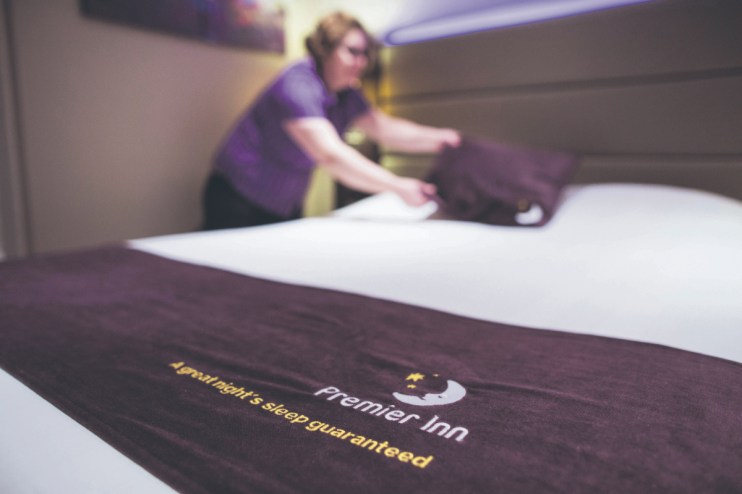Robot hoovers on the menu as Premier Inn owner looks to sweep up Reeves’ Budget mess

Whitbread, the hospitality chain which owns Premier Inn, could see UK costs increase by more than £100m following the Autumn Budget.
In a statement on the London Stock Exchange, the firm warned of gross UK cost inflation of between five and six per cent on a £1.7bn cost base, when factoring in the impact of Rachel Reeves’ plans.
Taking the top end of guidance, that would mean £102m in additional expenditure. Analysts, however, estimate the total impact directly tied to the Budget would be a maximum of £70m.
Whitbread said it could trim the total by around £50m with “efficiencies.” The company did not rule out future job cuts when approached by City AM, but said it was exploring a number of other niche strategies to slash costs, including the introduction of robot hoovers.
It came as quarterly sales dipped four per cent year-on-year in the UK, offsetting gains in the London-listed group’s German business.
But in the six weeks leading up to 9 January, Whitbread said it had seen accommodation sales rise two per cent, while in Germany, sales rose by more than a third.
Chief executive Dominic Paul said in a statement: “The structural shift in UK supply has meant that Premier Inn is continuing to sustain the significant gains made since the pandemic,”
“Whilst forward visibility remains limited, the favourable supply backdrop, together with our brand strength and commercial initiatives, means we are confident that we can continue to outperform the market.
“In Germany, we continued to perform strongly in what is an important trading period. As a result, we remain on track to reach profitability on a run-rate basis this year which is a key milestone and gives us real confidence as we continue to build momentum towards becoming the country’s number one hotel brand,” the boss added
Shares in Whitbread have risen just over one per cent year to date.
The Premier Inn owner has previously outlined a five-year aim of releasing more than £2bn for its shareholders via dividends and buy-backs, alongside £300m in incremental profit. It said on Thursday that the goal remained in sight.